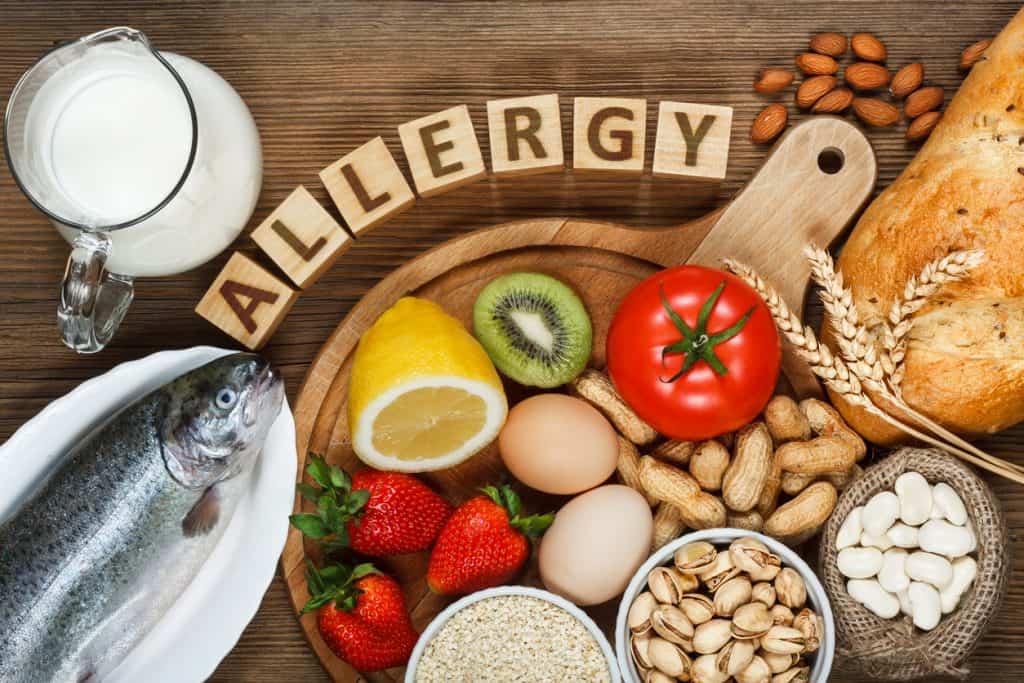
You have probably come across the term food chemical intolerance at some point in time. So what is it actually referring to? What are the symptoms? How is it diagnosed?
What is a food chemical intolerance?
Firstly, it’s important to point out that a food intolerance is NOT a food allergy, and it is crucial to get this right. A food ALLERGY is when the body mounts an immune response to a certain food when its eaten by an allergy sufferer. Reactions occur within minutes and in severe cases this can lead to anaphylaxis, which is potentially fatal. Allergy testing should be carried out by an allergist/immunologist.
A food INTOLERANCE on the other hand, is not an immune response. While the symptoms are unpleasant, they are not life threatening. People experience symptoms when they eat certain types of food. Sometimes, as is often the case with people suffering from Irritable Bowel Syndrome, it is because components of the food are poorly digested (read more about this here).
In the case of a food CHEMICAL intolerance, symptoms occur when a certain chemical is digested and absorbed into the body. These types of reactions are referred to as pharmacological food reactions because the chemical is having a drug-like effect on the body.
So, what are these chemicals that some people are intolerant to?
Many people hear the words ‘food chemical’ and instantly jump to the idea of additives and preservatives. And that is certainly part of the issue – some preservatives, artificial colours, artificial flavours and added MSG can cause a reaction. But often the problem is the naturally occurring salicylates, amines and glutamates that are found in many fresh, unprocessed foods. Fruits and vegetables can contribute greatly to the salicylate load in a diet, and many good quality protein sources are categorised as a high amine food. These food groups aren’t the sole contributors of these food chemicals – salicylates, amines and glutamates are found in varying levels across many different foods in all of the major food groups.
It is really important to note that only susceptible people have to worry about these food chemicals (estimated to be about 10% of the population). The rest of us can continue to eat a variety of foods without giving it any further thought – there is no need to avoid them if you don’t have an issue with them.
What are the symptoms?
The types of symptoms that people can experience varies greatly, and can involve one or a combination of different parts of the body. Some examples include:
- skin – rashes/eczema
- gastrointestinal – nausea, vomiting, abdominal pain, diarrhoea
- respiratory – congestion, sinusitis, excessive mucous
- neurological – migraines, impairment of memory or concentration, hyperactivity
Because many of these symptoms can have origins that are not food chemical related it is well worth a trip to the GP to rule out other possible causes.
Reactions to food chemicals can occur anywhere between 1-48 hours after it has been eaten and rely on how much of the chemical you have eaten over a period of time, so what you just ate isn’t necessarily the culprit. To further add to the complexity, different people react to different chemicals, and the same chemical may cause a different symptom in different people.
How is it diagnosed?
If you suspect a food chemical intolerance and you’ve ruled out other possible causes with the GP, now what? Unfortunately, there is no simple test to determine what food chemical is causing the reactions. Many alternative practitioners claim to be able to conduct hair or blood analysis but these methods are not backed by evidence and are likely to leave you with an overly restricted diet that isn’t necessary. Food intolerances are complex. Conducting a food elimination diet followed by food chemical challenges is the only way to determine the culprit.
A skilled dietitian is needed to be able to interpret the outcomes of the challenges, as well as ensure that all of your nutrient requirements are being met during the elimination phase. The good news is that once you have identified the culprit, it isn’t a matter of having to avoid that food chemical for life. Your dietitian can help you identify how much of it your body can handle.
If you are concerned that you may have a food chemical intolerance please contact The Healthy Eating Clinic for an appointment. One of our experienced dietitians will be able to assist you in investigating this further.
If you’d like further help with your nutrition please click below:



